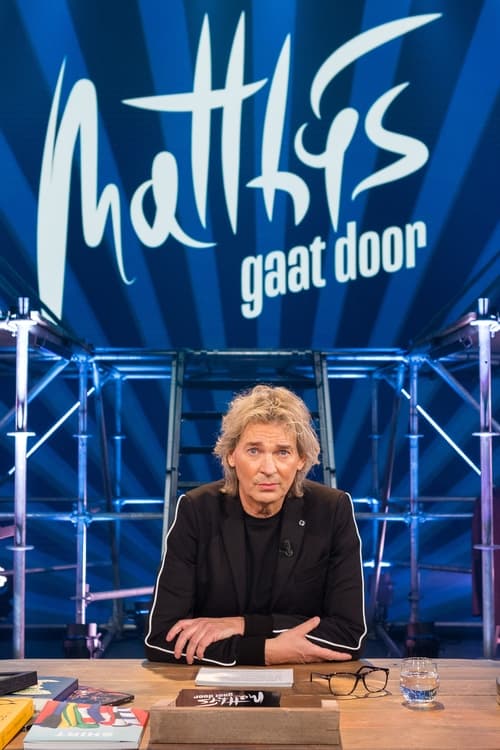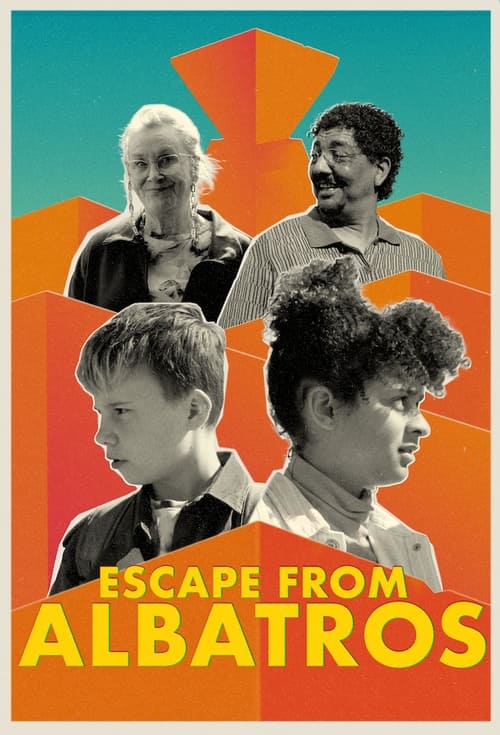
Ask Your Own Question
What is the plot?
In Episode 66 of "Lisa," the episode opens with Lisa sitting at her kitchen table, staring blankly at a half-finished cup of coffee. The morning light filters through the window, casting a warm glow on her face, but her expression is one of deep contemplation. She is grappling with the aftermath of a recent argument with her best friend, Sarah, which has left her feeling isolated and uncertain about their friendship.
As Lisa reflects, her phone buzzes with a message from Sarah, asking to meet up and talk. Lisa hesitates, her fingers hovering over the screen as she debates whether to respond. Ultimately, she decides to meet Sarah, driven by a mix of hope and anxiety about mending their relationship. The scene shifts to a local café where they agree to meet. The atmosphere is bustling, filled with the sounds of chatter and clinking cups, contrasting with the tension Lisa feels.
When Lisa arrives at the café, she spots Sarah already seated at a corner table, her expression unreadable. Lisa takes a deep breath and approaches, her heart racing. They exchange awkward pleasantries before the conversation turns serious. Sarah expresses her hurt feelings over Lisa's recent behavior, and Lisa, feeling defensive, struggles to articulate her side. The dialogue is charged with emotion, revealing their underlying fears and insecurities. As they talk, Lisa's frustration grows, and she raises her voice, drawing the attention of nearby patrons.
The confrontation escalates when Sarah accuses Lisa of being selfish, which strikes a nerve. Lisa's eyes flash with anger, and she retorts that Sarah has been overly critical. The argument reaches a boiling point, and in a moment of impulsive decision-making, Lisa stands up and storms out of the café, leaving Sarah behind, visibly upset. Outside, Lisa leans against the café wall, breathing heavily as she processes the fallout of their fight.
The scene transitions to Lisa walking through the park, her mind racing with thoughts of their friendship. She recalls happier moments they shared, which only deepens her sense of loss. As she walks, she encounters a group of children playing, their laughter a stark contrast to her somber mood. One child, a little girl, runs up to her and offers a flower, which Lisa accepts with a faint smile, momentarily lifting her spirits.
Later, Lisa returns home and finds her younger brother, Max, playing video games. He notices her distress and pauses the game to ask if she's okay. Lisa opens up to Max about her fight with Sarah, and he listens intently, offering his own perspective on friendship and conflict. His innocent insights help Lisa gain a clearer understanding of her feelings, and she begins to realize the importance of communication and vulnerability in relationships.
The next day, Lisa decides to reach out to Sarah again. She sends a heartfelt text, apologizing for her outburst and expressing her desire to talk things through. After a tense wait, Sarah replies, agreeing to meet. The scene shifts to a quiet park bench where they choose to meet, both women appearing nervous yet hopeful.
When they sit down, the atmosphere is thick with unspoken words. Lisa takes the initiative, expressing her regret for how she handled their last conversation. Sarah listens, her expression softening as Lisa shares her feelings of insecurity and fear of losing their friendship. The conversation gradually shifts from confrontation to understanding, as both women acknowledge their mistakes and the importance of their bond.
As they talk, the sun begins to set, casting a golden hue over the park. They share laughter and memories, slowly rebuilding the trust that had been strained. The episode concludes with Lisa and Sarah embracing, a symbol of their renewed friendship. The camera pulls back, capturing the two friends sitting together, silhouetted against the vibrant sunset, signifying hope and reconciliation.
What is the ending?
In the ending of "Lisa," Season 1, Episode 66, Lisa confronts her fears and insecurities, leading to a pivotal moment of self-acceptance. The episode culminates in a heartfelt reunion with her estranged friend, where they reconcile their differences and reaffirm their bond. The episode closes with Lisa embracing her true self, symbolizing her growth and newfound confidence.
As the episode unfolds, we begin with Lisa sitting alone in her room, surrounded by remnants of her past--old photographs and mementos that evoke a sense of nostalgia and regret. The dim light filtering through the curtains casts a somber mood, reflecting her internal struggle. She gazes at a picture of her and her friend, a look of longing in her eyes, as she grapples with the fallout of their recent conflict.
The scene shifts to a flashback, where we see the moment that led to their estrangement. Lisa and her friend had a heated argument over a misunderstanding, with harsh words exchanged that left both feeling hurt and abandoned. This flashback serves to deepen our understanding of Lisa's emotional turmoil and the weight of her regret.
Returning to the present, Lisa decides she can no longer live in the shadow of her past mistakes. With determination, she gets dressed, choosing an outfit that reflects her personality--a vibrant mix of colors that symbolizes her desire to break free from her insecurities. As she steps outside, the world feels brighter, and the sounds of life around her invigorate her spirit.
The next scene takes place at a local café, where Lisa knows her friend often hangs out. The atmosphere is bustling, filled with laughter and chatter, but Lisa feels a knot of anxiety in her stomach. She scans the room, her heart racing as she spots her friend sitting at a table, absorbed in a book. Gathering her courage, Lisa approaches, her palms sweaty and her voice shaky.
"Can we talk?" she asks, her vulnerability evident. Her friend looks up, surprise flickering across her face, but there's also a hint of hope. They sit down, and the conversation begins awkwardly, with both struggling to find the right words. Lisa's eyes well up with tears as she apologizes for her part in the argument, expressing how much their friendship means to her. Her friend listens intently, the tension slowly dissipating as they both share their feelings of hurt and misunderstanding.
As they talk, the café around them fades into the background, and the focus shifts entirely to their emotional exchange. They reminisce about the good times they shared, laughter punctuating their conversation as they recall silly moments from their past. This shared vulnerability brings them closer, and the atmosphere shifts from one of tension to warmth and understanding.
In a pivotal moment, Lisa reaches across the table, taking her friend's hand in hers. "I don't want to lose you," she admits, her voice trembling with sincerity. Her friend squeezes her hand back, a smile breaking through the earlier tension. "You won't," she replies, her eyes glistening with unshed tears. This moment of connection signifies their reconciliation, a powerful testament to the strength of their bond.
The episode concludes with Lisa and her friend leaving the café together, laughter echoing as they walk down the street. The camera captures their silhouettes against the setting sun, symbolizing a new beginning. Lisa's face radiates confidence and joy, a stark contrast to the uncertainty she felt at the beginning of the episode. The final shot lingers on their intertwined hands, a visual representation of their renewed friendship and Lisa's journey toward self-acceptance.
In this ending, Lisa emerges as a more resilient character, having faced her fears and embraced her true self. Her friend, too, shows growth, demonstrating the power of forgiveness and understanding. The episode closes on a hopeful note, leaving viewers with a sense of closure and the belief that relationships can heal and flourish despite past conflicts.
Is there a post-credit scene?
In "Episode 66" of the TV show "Lisa," there is indeed a post-credit scene that adds an intriguing layer to the episode's narrative.
As the credits roll, the screen fades to black before transitioning to a dimly lit room filled with shadows. The camera slowly pans across the space, revealing a cluttered desk strewn with papers and photographs. The atmosphere is tense, underscored by a low, suspenseful score that heightens the sense of mystery.
In the center of the desk, a single photograph catches the light. It's a picture of Lisa, smiling, but the edges are frayed, suggesting it has been handled frequently. The camera zooms in on the photo, and as it does, a hand reaches into the frame, picking it up. The hand is shaky, revealing the emotional turmoil of the person holding it.
The scene cuts to a close-up of the person's face, partially obscured in shadow. Their eyes are filled with a mix of longing and regret, hinting at a deep connection to Lisa. The character's internal struggle is palpable; they seem torn between the desire to reach out to her and the fear of the consequences that might follow.
As the camera lingers on their expression, a soft voice whispers Lisa's name, filled with both affection and sorrow. The scene ends abruptly, leaving viewers with a sense of unresolved tension and curiosity about the character's intentions and their relationship with Lisa.
This post-credit scene effectively sets the stage for future developments, teasing potential conflicts and emotional revelations that could unfold in subsequent episodes.
How does Lisa's relationship with her best friend evolve in this episode?
Throughout Episode 66, Lisa's relationship with her best friend is tested as they navigate a misunderstanding that arises from jealousy. The tension culminates in a heartfelt conversation where they both express their fears of losing each other, ultimately strengthening their bond.
How does the setting influence the events of Episode 66?
The setting of a family reunion in Episode 66 plays a crucial role in the unfolding drama. The familiar yet charged atmosphere amplifies the emotional stakes, as past grievances resurface and relationships are put to the test amidst the backdrop of shared memories.
What internal conflict does Lisa face regarding her career aspirations in this episode?
In Episode 66, Lisa grapples with self-doubt about her career aspirations as she receives criticism from a mentor. This internal conflict manifests in her interactions, showcasing her struggle between pursuing her passion and the fear of failure.
What significant event occurs between Lisa and her estranged father in Episode 66?
In Episode 66, Lisa confronts her estranged father during a family gathering, leading to an emotionally charged exchange where unresolved feelings of abandonment and longing surface. This pivotal moment forces both characters to confront their past and the impact it has had on their present lives.
What role does the new character introduced in Episode 66 play in Lisa's life?
The new character introduced in Episode 66 serves as a catalyst for Lisa's personal growth. They challenge her to step out of her comfort zone, leading to a series of events that force Lisa to reevaluate her choices and aspirations.
Is this family friendly?
In "Episode 66" of the show "Lisa," there are a few elements that may be considered potentially objectionable or upsetting for children or sensitive viewers.
-
Emotional Conflict: The episode features intense emotional scenes where characters experience significant distress, which may be overwhelming for younger viewers.
-
Family Struggles: There are themes of familial tension and conflict that could resonate negatively with children who may not fully understand the complexities of adult relationships.
-
Mature Themes: The episode touches on issues such as betrayal and trust, which might be difficult for younger audiences to process.
-
Visual Tension: Certain scenes may include visual representations of conflict or distress that could be unsettling.
-
Character Vulnerability: Moments of vulnerability and sadness in characters may evoke strong emotional responses, which could be upsetting for sensitive viewers.
These aspects contribute to a narrative that, while rich in character development and emotional depth, may not be suitable for all children or sensitive individuals.

































